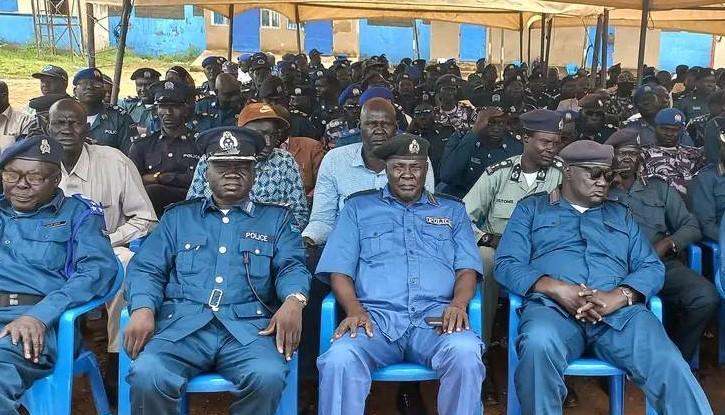Jenifer James
Africa-Press – South-Sudan. The government is facing an uphill task in replenishing the ageing workforce in the organized forces, who are rather unwilling to exit the service.
Addressing the police yesterday, just a week after assuming office, the minister of interior, Angelina Teny, lamented that the country is willing to rejuvenate its force by employing fresh blood but this would have to come at the expense of retiring the elderly ones. The most difficult part of this job is convincing the old guard to exit the service and be content with the pension.
“In order for the country to employ young blood, the work of the organized forces needs young people. If you do not exit, it becomes difficult for you to continue to recruit and will bring problems that may cause the organized forces to be top headache,” she lamented.
According to Angelina, the problem is not unique to her new docket only. When she served as the minister of defence and veterans affairs, she remembered how there were laws on retiring personnel and putting them up on pension but implementing them were a toll order.
She lamented that regardless of the pre-existing policy, there seems not to be enough funds to roll this out because the treasury does not have enough money, and paying pension from what is collected from the officers would not last for a year.
“There are challenges when it comes to a pension. I know the contributions of civil servants are taken, but the main challenge is the contribution that comes from the ministry of finance. If you decide to roll out a pension with the little you have, it may run for two or three months, and you will fall into problems,” she said.
“I will continue to put pressure on the ministry of finance to pay their pension contribution; there is no way out for the civil servant to continue working throughout their entire life, meaning there is an entry and exit,” Angeline said.
Angelina promised to address the challenges as the forces their views implemented, and ensure a good working environment for the forces to protect the citizens of South Sudan.
The Assistant Inspector General of Police for Administration and Finance, Lt. Gen. Abraham Manyuat, echoed these sentiments that pensions are the main challenge the ministry of interior faces.
“We have many problems but the most important of them is the lack of a pension system, which will enable us to reduce the pay list to the names of elderly people who are unable to work,” he said.
In September, the National Minister of Labor, James Hoth, said most civil servants who are in the retirement age bracket have refused to go for pensions. He made the remarks during the economic conference.
“In South Sudan, people are refusing to go for pension despite their age; until today, people have been resisting and occupying the places made for young people. What we need is political will,” he said.
Hoth said there is a need for sensitization to make civil servants aware of the retirement age so that they can exit the service to allow the government to employ a young and vibrant workforce.
Source: The City Review South Sudan
For More News And Analysis About South-Sudan Follow Africa-Press






